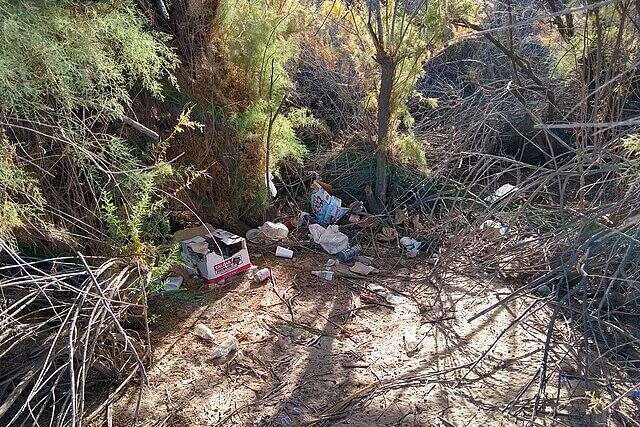
South Essex Wildlife Hospital in Orsett, Essex, reports that thousands of animals perish annually due to litter-related incidents.
Manager Sue Schwar highlights litter entanglement, particularly in netting, as a leading cause of wildlife fatalities.
National Highways responds to this crisis with a new campaign aimed at combating littering.
The hospital emphasises the escalating severity of littering, posing imminent danger to wildlife with risks of fatal infections and choking.
Ms Schwar said: “Sadly litter affects wildlife very adversely, we get lots of animals getting caught up in discarded litter.
“Some of them we can save but they’re notoriously difficult to catch, and sadly we don’t and it does cause the death of many thousands of animals every year.”
She said glass bottles were “notorious” for trapping voles, and that many foxes had got “their heads trapped in plastic jars”.
“We’ve seen lots of animals die when they’ve got something like a constriction injury around their neck, particularly younger animals that get caught [in it] and it gets tighter and tighter as they grow,” Ms Schwar said.
Schwar underscores the peril posed by litter accumulation along major roads like the A12 and A13, especially as vegetation obscures the debris, making it harder for animals to avoid.
Additionally, entrapment in fishing lines and netting emerges as a significant concern.
Over the past three years, the RSPCA has documented over 10,000 incidents of animals harmed or killed by discarded litter. To address this issue, National Highways initiates measures such as deploying AI-enabled cameras and collaborating with local authorities for enforcement.
Trial efforts include utilising motorway message signs and geofencing technology to send reminders to motorists entering litter-prone laybys, urging them to responsibly dispose of their waste.
——————————————————————————
At Natural World Fund, we are passionate about stopping the decline in our wildlife.
The decline in our wildlife is shocking and frightening. Without much more support, many of the animals we know and love will continue in their decline towards extinction.
When you help to restore a patch of degraded land through rewilding to forests, meadows, or wetlands, you have a massive impact on the biodiversity at a local level. You give animals a home and food that they otherwise would not have had, and it has a positive snowball effect on the food chain.
We are convinced that this is much better for the UK than growing lots of fast-growing coniferous trees, solely to remove carbon, that don’t actually help our animals to thrive.
This is why we stand for restoring nature in the UK through responsible rewilding. For us, it is the right thing to do. Let’s do what’s right for nature!
Donate today at https://naturalworldfund.com/ and join in the solution!

